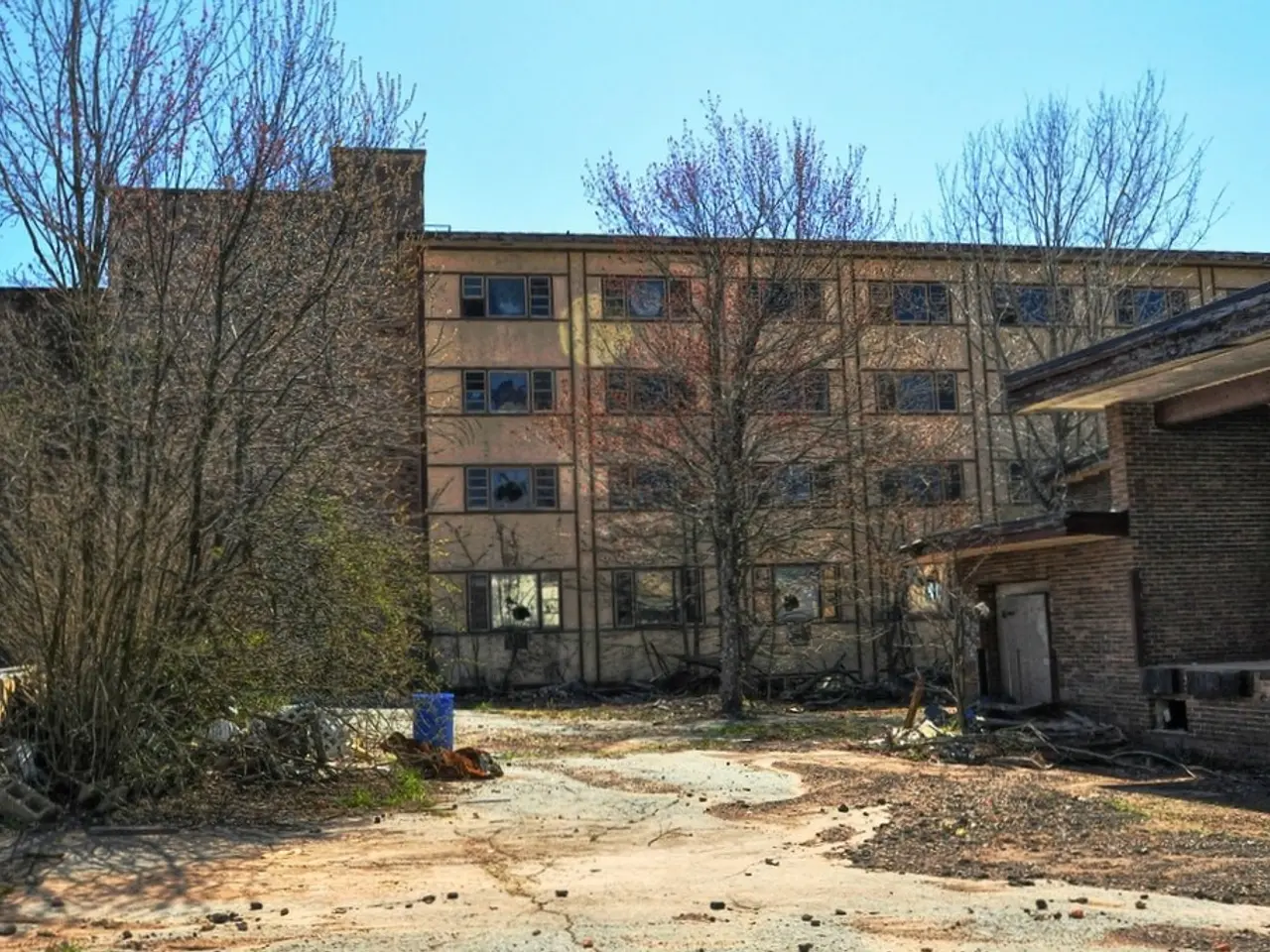Solar panel application denied for homeowner; nearby 2,000-acre solar farm gets approved instead
In the picturesque county of Wiltshire, a proposed solar park development is causing a stir among residents and local politicians. The Lime Down Solar Park, a project by Island Green Power, is currently undergoing consultation, with its future hanging in the balance.
The proposed development, spanning 7,000 acres and including underground cables, would make it one of the largest solar projects in the UK. However, this industrial-scale project has raised concerns about planning fairness, as a local resident, Tony Ward, was previously denied permission to install solar panels on his property due to historical development concerns.
Ward, a homeowner in Chippenham, Wiltshire, is now leading a fight against the proposed 2,200-acre solar farm near his home. He expresses frustration over the contradiction between his denied permission for a small number of solar panels and the proposed large-scale development nearby.
The opposition to the Lime Down Solar Park has galvanized thousands of local residents, including the grassroots campaign group 'Stop Lime Down.' Critics argue that the project would permanently scar the rural countryside and displace productive agricultural land. Protests have taken place, including a major one near Malmesbury with over 400 participants.
Safety concerns have also been raised, particularly about the large battery installation. Critics, including Roz Savage MP, have warned of potential devastating consequences if a fire were to occur near nearby railway lines.
However, the developers insist that they are engaging with the community and considering feedback before submitting a final proposal. The project remains under consultation, with a decision expected in late 2025.
The Lime Down Solar Park has drawn sharp criticism from local MPs, environmental experts, and community groups. Supporters argue that the project aims to deliver clean and affordable energy, contributing to the UK Government's target for a zero-carbon electricity system by 2030. They present it as a necessary step towards a cheaper, sustainable energy future.
The next critical step for the project is the upcoming nationwide consultation in October 2025, which will invite public feedback to the Planning Inspectorate before any final decisions are made. In the meantime, the debate continues, with both sides passionately advocating for their respective causes.
- The Lime Down Solar Park, a 7,000-acre project by Island Green Power, is currently under consultation, with Tony Ward, a Chippenham homeowner, leading an opposition due to its proximity to his home.
- Ward is frustrated that his request for solar panels on his property was denied due to historical development concerns, contrasting this with the proposed large-scale development nearby.
- The opposition has galvanized thousands of local residents, including the grassroots group 'Stop Lime Down', who argue that the project permanently scars the countryside and displaces agricultural land.
- Protests have taken place, including a major one near Malmesbury with over 400 participants, expressing concerns about the project's impact on the rural landscape.
- Safety concerns have been raised, particularly about the large battery installation and potential fire hazards near railway lines, with Roz Savage MP and others expressing their warnings.
- Despite the criticism, the developers assure that they are engaging with the community and considering feedback before submitting a final proposal.
- The project aims to deliver clean and affordable energy, contributing to the UK Government's target for a zero-carbon electricity system by 2030, according to its supporters.
- The upcoming nationwide consultation in October 2025 will invite public feedback to the Planning Inspectorate before any final decisions are made.
- The debate continues, with local MPs, environmental experts, and community groups critically examining both the benefits of renewable energy and the concerns regarding planning fairness and environmental impact.
- The solar park development, if approved, could have significant implications for the renewable energy industry, environmental science, and finance business, as well as policy and legislation on climate change.
- The general news is filled with discussions about the role of renewable energy projects in addressing climate change, with debates often centered around balancing environmental concerns and economic growth.
- Ultimately, the outcome of this project could set a precedent for future solar farm developments in the UK, drawing attention to the need for balanced planning and fair policies in the renewable energy sector.




